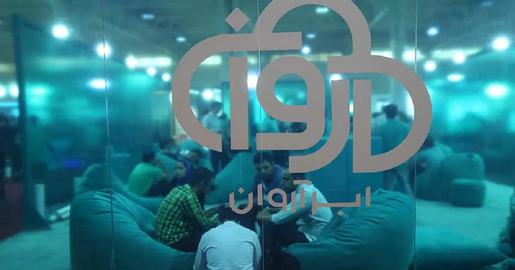Earlier this week, the European Union imposed sanctions on Iran’s cloud provider Abr Arvan, or ArvanCloud, saying that the company is “involved in censorship and efforts of the Iranian government to shut down the internet.”
The EU move came amid a heavy-handed state crackdown on weeks of nationwide protests demanding more freedoms and women's rights. More than 340 people have been killed by security forces so far, including dozens of children, while thousands have been thrown behind bars.
Meanwhile, the authorities have to a large scale shut down the Internet for most of Iranians by cutting off mobile data, disrupting social media platforms, slowing Internet services and blocking individual users, among other things, in order to prevent Iranians from accessing and disseminating information online and from communicating safely.
Known for its harsh Internet censorship, which includes banning thousands of websites and state-imposed Internet shutdowns, Iran has been working for years on a project to develop a sanitized, national Internet that would work independently from the World Wide Web.
According to the EU, ArvanCloud is a “major partner” in the Iranian government’s project, which the Tehran-based private company denies.
IranWire talked to two IT experts, Amir Rashidi and Mahdi Saremifar, about ArvanCloud’s activities and the reasons behind the EU move.
The November 2019 Experience
The Supreme Council of Cyberspace of Iran in 2016 launched the National Information Network project, which aims at creating an Internet network that can be cut off from the World Wide Web and be controlled by the Iranian government.
However, when Iran experienced an unprecedented, near-total shutdown of the Internet during angry demonstrations that rocked more than 100 cities and towns in November 2019, the National Information Network failed to deliver.
“The Islamic Republic found out that, without the Internet, this network is just a bunch of cables and servers that cannot provide services and contents that would make it possible to cut off Iran from the international network,” says Saremifar, an IT journalist based in Canada.
In a 2020 speech, Abolhassan Firouzabadi, secretary of the Supreme Council of Cyberspace, “referred to certain basic services that are essential for the National Information Network to function,” including a domestic search engine, messaging system, email system, operating system and cloud services, according to Saremifar.
A few weeks after the November 2019 protests, “when it became clear that the National Information Network was useless without the internet, [Supreme Leader] Ali Khamenei sent a memo to the Ministry of Communication and Technology, ordering it to take responsibility for content and basic services, in addition to the infrastructure, meaning cables, routers and servers.”
After that, the government launched the project for providing Internet content, and private companies such as ArvanCloud joined in to supply the necessary services, says Saremifar.
ArvanCloud, a “Major Partner” in Iran’s Plan To Create A National Intranet
According to the EU, ArvanCloud has been since 2020 a “major partner” in the Iran’s government’s project to set up a separate, Iranian version of the Internet.
“Such a national intranet with connecting points to the global internet will help to control the flow of information between the Iranian intranet and the global internet,” it said.
The company, which is now subject to an EU travel ban and asset freeze, categorically denied these “baseless allegations,” saying it has been the victim of a “disinformation” campaign.
ArvanCloud had previously rejected its involvement in censorship, saying it “only provides cloud infrastructure” and that this technology “cannot have any impact on the projects to restrict or block the Internet in Iran or anywhere in the world.”
ArvanCloud says it offers integrated cloud services like Content Delivery Network, Cloud Server, Cloud Security, Object Storage, Video Platform and Container Service.
It attracted the attention of Germany’s media and government last month after joint research by the non-profit German research center Corrective and two media outlets, Taz and netzpolitik.org, concluded that Softqloud, an IT service insights provider headquartered in Germany, was a branch of ArvanCloud and that it was one of the four digital connection gates that connect Iran to the global Internet.
The research relied on a number of reports published by Persian-language media outlets, including the BBC Persian Service and the website Fact Nameh.
It said ArvanCloud was one of the contractors implementing the Abr Iran project, which was launched following Khamenei’s order to the Ministry of Communication.
In late September, before the research was published, ArvanCloud announced that it had received a “termination notice” from Softqloud. “Based on our termination terms, we shall, within 3 months up to 31.12.2022, migrate all of our services,” it added, insisting that Softqloud was a “commercial partner” that was “responsible for ArvanCloud’s international customers and suppliers.”
A BBC Persian report, published in March 2021, reported that two months earlier Iran’s Ministry of Communication announced it had signed a contract with ArvanCloud and another company to work on the Abr Iran project.
BBC Persian previously reported that the Abr Iran project would enable “Iranian officials” to cut off Iran from the global Internet while allowing Iranians to access the domestic network.
A report by Fact Nameh, also based on official government communiques, said that ArvanCloud was providing cloud storage services for the Abr Iran project.
Evidence confirms that ArvanCloud is working with the Iranian government to develop the National Information Network.
But Rashidi, a U.S.-based Internet security and digital rights researcher, says it is “really very strange that the EU has sanctioned a company that is building the infrastructure, but not any of the individuals and companies that, based on the evidence, are directly involved in the suppression of the Internet.”
ArvanCloud provides cloud services, which “are part of the infrastructure of a network,” Rashidi says.
“What this sanction does is that it cuts off from the world one of the important components of the infrastructure of the network in Iran. Well, this is exactly what the Islamic Republic wants.”
According to Saremifar, saying that companies offering infrastructure services such as ArvanCloud “are merely developing the technological infrastructure is not correct.”
“In fact, they are supporting the strategy of the Islamic Republic for building the National Information Network, which chiefly aims to cut off Iran’s network from the worldwide network,” one of the tools used by the regime to “guarantee its own survival.”
visit the accountability section
In this section of Iran Wire, you can contact the officials and launch your campaign for various problems

























comments
The UK thinking they were ahead in 2020 gets them to corrupt Israel which of course is the wrong direction. When UK goes animal testing from the 90's you know they turned corrupt in the competition with trafficking efforts used for multiple purposes.